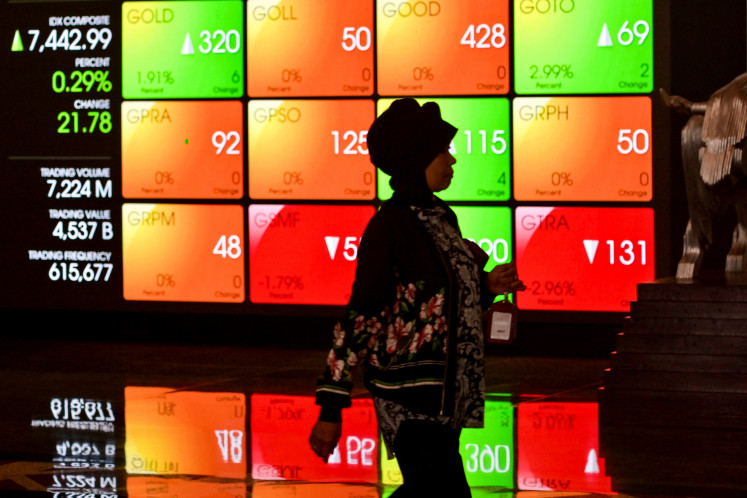Japan's economy contracts for first time in two quarters
GDP shrinks more than expected in third quarter as supply shortages hit industries and as business and consumer spending declines.
Change Size
 A container ship from MSC leaves while another one from NYK Line is docked in the port of Tokyo on Nov. 4, 2021. ( AFP/Charly Triballeau)
A container ship from MSC leaves while another one from NYK Line is docked in the port of Tokyo on Nov. 4, 2021. ( AFP/Charly Triballeau)
J
apan's economy contracted much faster than expected in the third quarter as global supply disruptions and fresh COVID-19 cases hit business and consumer spending, raising challenges for the new government's growth plans.
While many analysts expect the world's third-largest economy to rebound in the current quarter, worsening global production bottlenecks pose increasing risks to the outlook.
"The contraction was far bigger than expected due to supply-chain constraints, which hit output and capital spending hard," said Takeshi Minami, chief economist at Norinchukin Research Institute.
"We expect the economy to stage a rebound this quarter but the pace of recovery will be slow as consumption did not get off to a good start even after COVID-19 curbs were eased late in September."
The economy shrank an annualized 3.0 percent in July-September after a revised 1.5 percent gain in the first quarter, preliminary gross domestic product (GDP) data showed on Monday, compared with a median market forecast for a 0.8 percent contraction.
The weak GDP contrasts with more promising readings from other advanced nations such as the United States, which saw its economy expand 2.0 percent in the third quarter on strong pent-up demand.
On a quarter-on-quarter basis, GDP fell 0.8 percent compared with market forecasts for a 0.2 percent decline.
Prime Minister Fumio Kishida plans to compile a large-scale economic stimulus package worth "several tens of trillion yen" on Friday, but some economists were skeptical about its impact on growth near-term.
"The package will likely be a mixed bag of near-term and long-term growth measures, and the focus may be blurred, so it won't have much impact near-term," Norinchukin's Minami said.
Consumption fell 1.1 percent in July-September from the previous quarter after a 0.9 percent gain in April-June.
Capital expenditure also decreased 3.8 percent after rising a revised 2.2 percent in the previous quarter.
Domestic demand shaved off 0.9 percent point to GDP growth.
Exports lost 2.1 percent in July-September from the previous quarter as trade was hit by the chip shortages and supply-chain constraints.
Analysts polled by Reuters expect Japan's economy to expand an annualized 5.1 percent in the current quarter, as consumer activity and auto output pick up thanks to a drop in COVID-19 cases and easing supply disruptions.
Japanese firms still face risks from higher commodity costs and supply bottlenecks, which threatens to undermine the economic outlook over the short- to mid-term.










